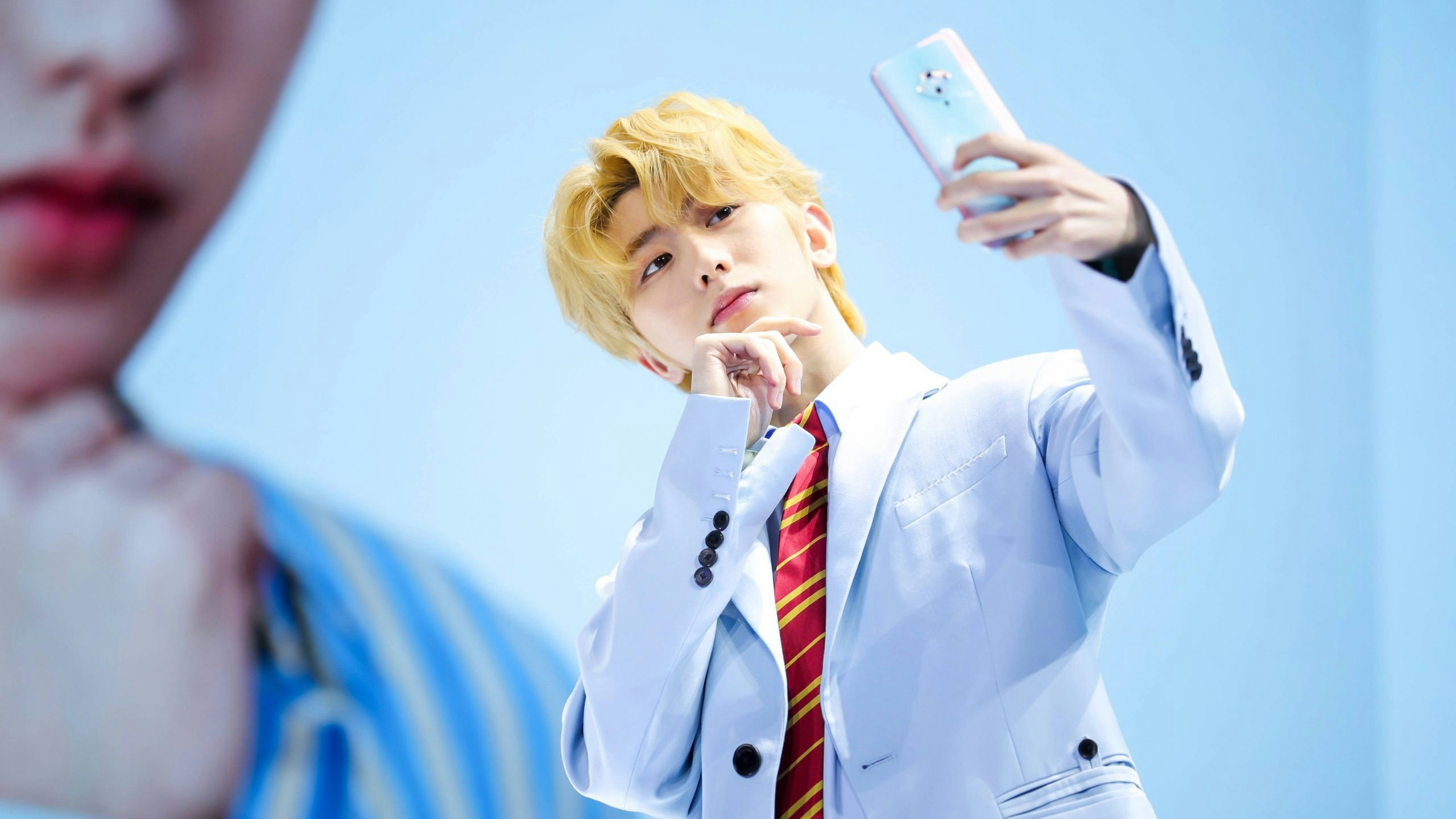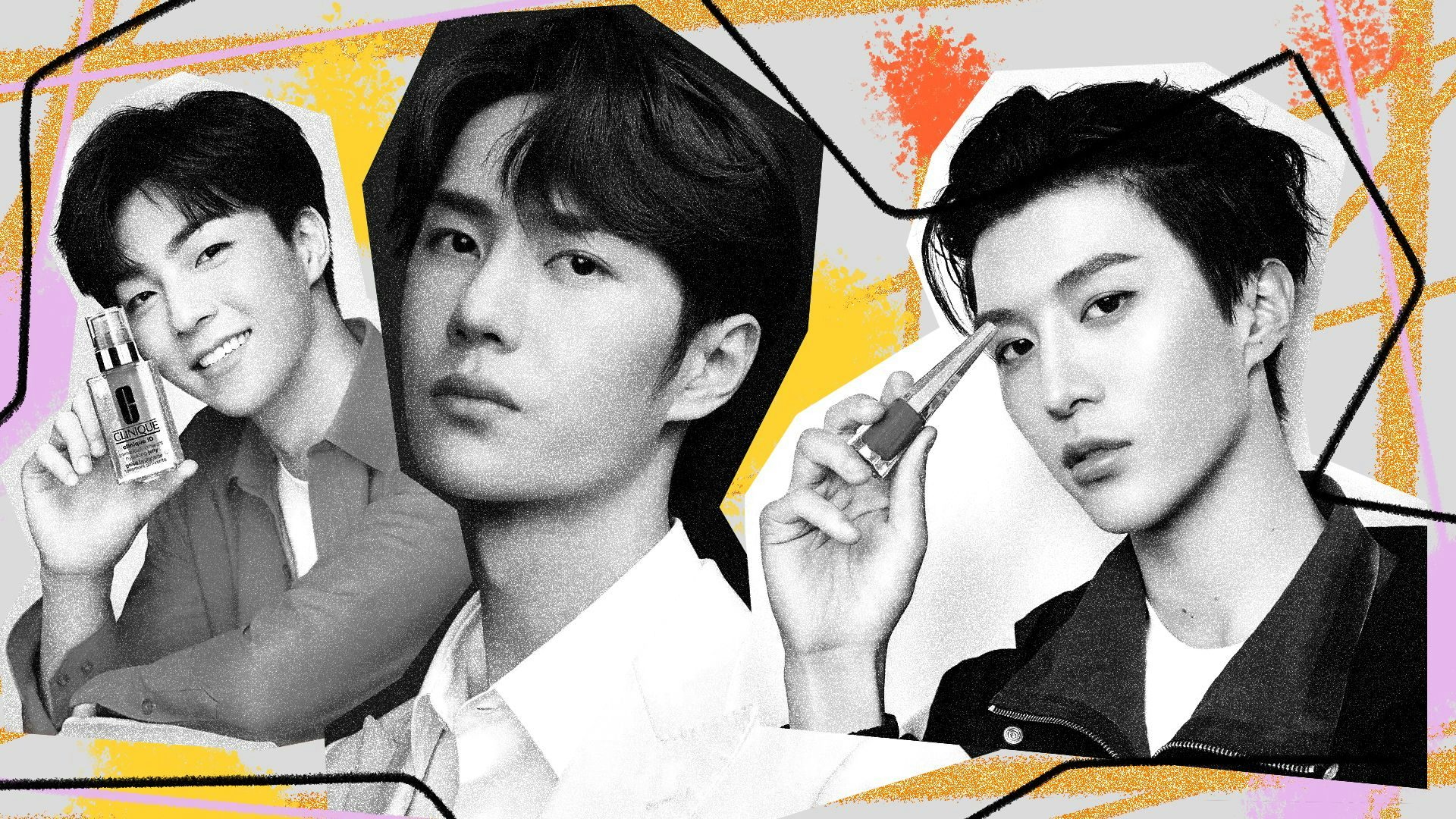Key Takeaways:#
China’s love affair with androgynous males is a trend that has culminated in the term “Little Fresh Meat,” and now few can dispute the pulling power of male celebrities like Lu Han and Kris Wu over their dedicated fans. From Fendi to Prada, luxury houses are now codependent on the fan economy and use these feminine idols to directly target women.
A new proposal might put the fate of these beautiful young men in jeopardy as China has put forward legislation to prevent what it calls the “feminization” of young males. The Ministry for Education has suggested placing more emphasis on student “masculinity” training through physical education teachers.
Reactions to the news are mixed but generally negative as Chinese consumers are now discussing topics such as ‘toxic masculinity’ online and holding companies accountable for toxic environments. However if the legislation targets looks, then the many industries dependent on these androgynous men especially beauty could be at risk. Intentional brands will be first in line to face sanctions.
China loves “Little Fresh Meat,” the handsome young male celebrities and KOLs, famous for their androgynous looks and feminine aesthetic appeal. Whether it’s big draws like Lu Han, now the face of Gucci and widely considered the darling of the trend, or Kris Wu, contracted to Louis Vuitton and Bvlgari, or even the “King of Lipstick” himself, Li Jiaqi, these idols have turned “Little Fresh Meat” not only into a popular trend, but also into a very profitable and influential business — both for themselves and the brands they represent.
Now, however, China might be clamping down on men being too feminine with a new proposal that could mean that their time is numbered. It has legislation in progress to prevent what it calls the “feminization” of young males. While the exact reasons are not listed, the 13th Five-Year Plan period, which laid out plans from 2016 to 2020, aimed to have the Ministry of Education set up to “study the influence of the phenomenon of Internet celebrities on youth values and countermeasures.”
And, as much as China has tried to suppress males from doing female things in the past, such as Jing Boran wearing earrings, there are all manner of KOLs endorsing female products, from perfume to tampons. Given this, the use of male ambassadors to sell makeup is also normalizing the budding market for male make-up and skin care lines as well. Prada and Givenchy ambassadors Cai Xukun and Wang Yibo are but two KOLs who love to be seen wearing makeup.
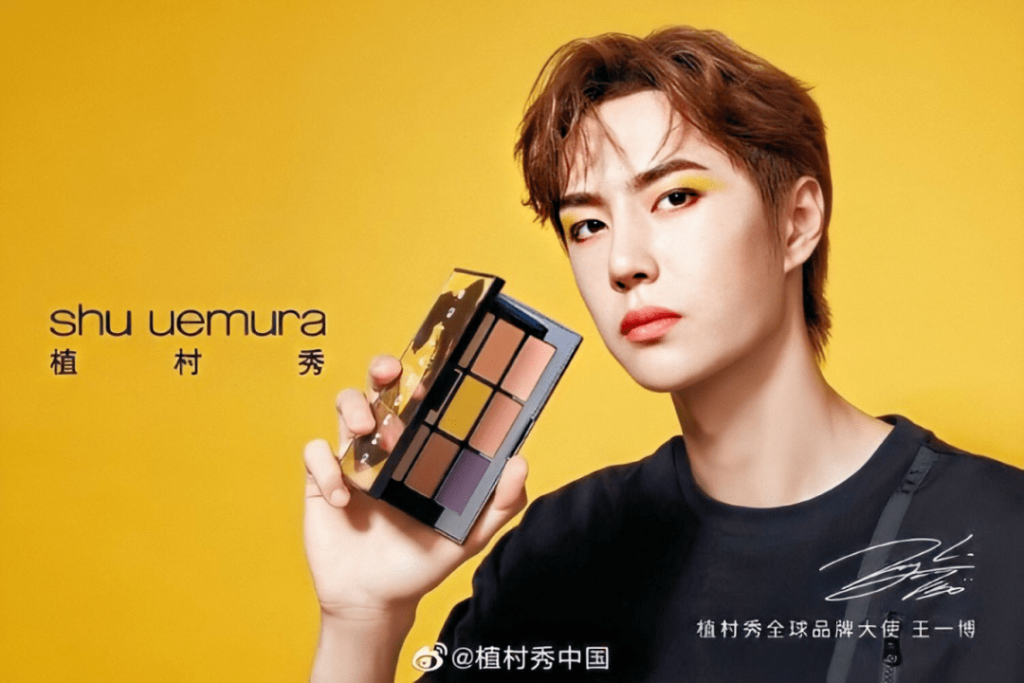
Yet, the Ministry for Education has suggested placing more emphasis on student “masculinity” training through the addition of physical education teachers. In fact, during the past five years, around 20,000 new physical education teachers have been added each year through free teacher training students, targeted enrollment programs and other channels.
While the ramifications of such a leaning could have a startling impact on the “Little Fresh Meat” fan economy, advertising, and fashion endorsements, for now it’s still unclear. Here, Jing Daily looks at how netizens have reacted to this news and the potential implication for brands.
China’s response to stereotypes of masculinity#
“Before you teach a boy to be masculine, teach them how to be a good person first,” is the title of article currently trending among Gen Zers on Weibo and is indicative of the mixed reaction the news has received from concerned netizens. However, the phrase “toxic masculinity” is a relatively new one on the mainland even though the issues it causes are not unknown. “It's the phrase itself that is new,” Yishu Wang, founder of Half a World, a marketing consulting service, explained, adding that “people are now being more vocal about its implications,” especially over the last number of years.
“People know the problems exist in China and there are lots of discussions online regarding domestic violence and other negative issues, which is one of the backlash areas from this new ruling,” she continued. Recently, many KOLs and influencers such as podcaster Steve Shi and Tiktoker, known as @internet-garcon-pdf on Weibo, are spotlighting these issues on social platforms too, urging citizens to discard gender stereotypes. In fact, these educational posts may be advancing the debate, as well as highlighting what netizens will not learn from school education.
Consumers too are taking to social platforms to voice their opinions on companies which they feel are promoting toxic atmospheres for women. Mostly recently, Bilibili faced online backlash for inappropriate posts, while underwear brand Ubras came under fire for comments from a male endorsee. On the other hand, male consumers are being more open as society embraces a more dynamic understanding of masculinity being put forward by these well-groomed male stars. Grooming products and wellness brands dedicated to the men's skincare market have surged in recent years, experiencing a 31 percent year-on-year growth.
Since the announcement, some local media have been against the guidance and state broadcaster CCTV for one criticized the students’ masculinity policy. Indeed, due to the media outcry on the issue, the Ministry has recently responded to clarify its definition of masculinity, stating it does not refer to masculinity or male behavior. Rather, it is “developing good exercise habits and a healthy lifestyle, refining a strong will, and cultivating a cooperative spirit.”
It was also clarified that the term included other issues like “commitment, courage, and self-improvement” and that the cultivation of masculinity is a subtle process and not entirely the responsibility of physical education teachers. However, most importantly for fashion, it deduced that masculinity is also the result of the social environment, and that film and television dramas and celebrities have a greater impact on young people and indicated the need to provide these young people with the correct role model. Reading between the lines, this would seem to hint towards a questioning of the role of these media influencers.
The power of male KOLs to sell to Chinese women#
China’s ongoing love affair with androgynous males has been influenced by neighboring countries Japan and Korea. In 1996, Japan’s superstar Takuya Kimura commercialized the trend selling three million Kanebo lipsticks in two months. The lure of these young, feminine looking men to sell female products, including lingerie, might seem at odds with China’s empowered women, but the list of luxury brands using these influencers is endless.
Beauty is a key category for the trend; in 2015, the actor Yang Yang became the first male star to appear in ads for Guerlain lipsticks in mainland China and three years later Maybelline, Lancôme, and L’Oréal all had male KOLs fronting beauty products. The most famous, of course, is the aforementioned Li Jiaqi, who amazingly sold 15,000 lipsticks in just five minutes, while wearing the lipstick himself.
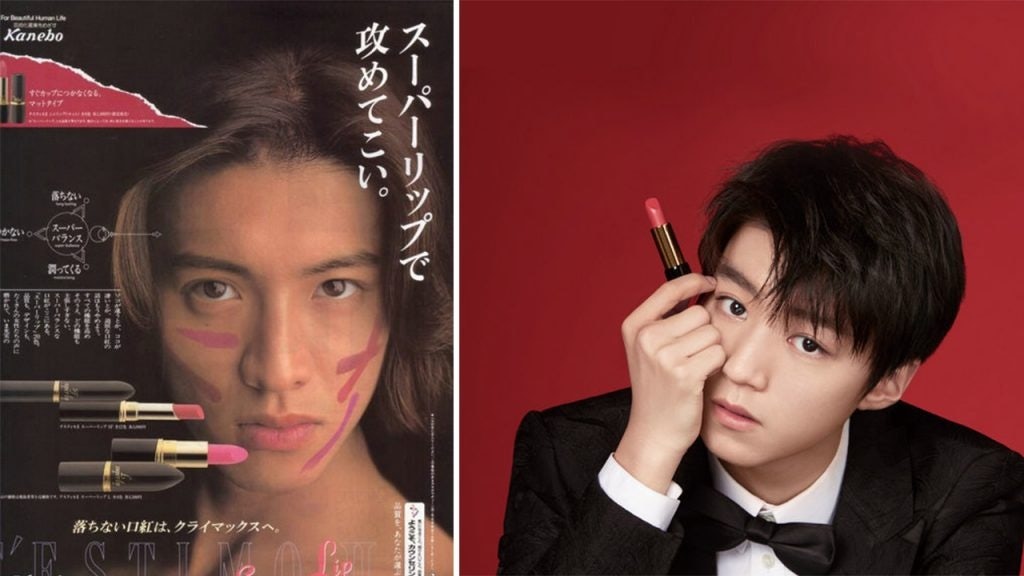
China’s pop idol fever has become a proven method to gain millions of interactions from a single post and has proven particularly pivotal in this sector. Add in the lure of boy brands, such as Uniq and TFBoys, and these contracts can run into big bucks for famous figures; This week alone C-Beauty brand Florasis (or Huaxizi) taped the boy group Teens in Times as its ambassador on official social channels.
And these days, the fan economy is no less tricky, and “Little Fresh Meat” (Xiao Xian Rou) attract a much older audience as well. “Even luxury’s target audiences are getting younger, so it's clever now that they are using male celebs to promote, but interestingly this “Little Fresh Meat” category also appeals to women in their 30s or 40s who are actively following these young men,” Wang stated.
Implications for brands who must proceed with caution#
All major beauty brands now are targeting these ambassadors fans, meaning the ruling could upend their KOL strategies. So, where exactly does this leave names, from Fendi to Burberry, who are working with these beautiful, young men? As Wang noted, for now, the official documents don’t necessarily mention putting regulations on how celebrities or influencers look; however, they do hint to them as a negative influence.
“I don't know yet if there will be any immediate impact on brands doing marketing or working with celebrities, but if I were in PR, I would be very cautious about this as you don't know where it will end. And international brands will be the first targets — skincare and beauty brands, but luxury fashion houses too,” she added.
Beauty could be especially hard hit if the overall trend is to move away from this androgenous look. No longer might we see inventive campaigns such as Yatsen Global’s brand Little Ondine’s which showed spokesperson Tao in both a male and female version of its makeup line. And naturally enough, some would be happy as not all Chinese citizens are open to gender blurring aesthetics.
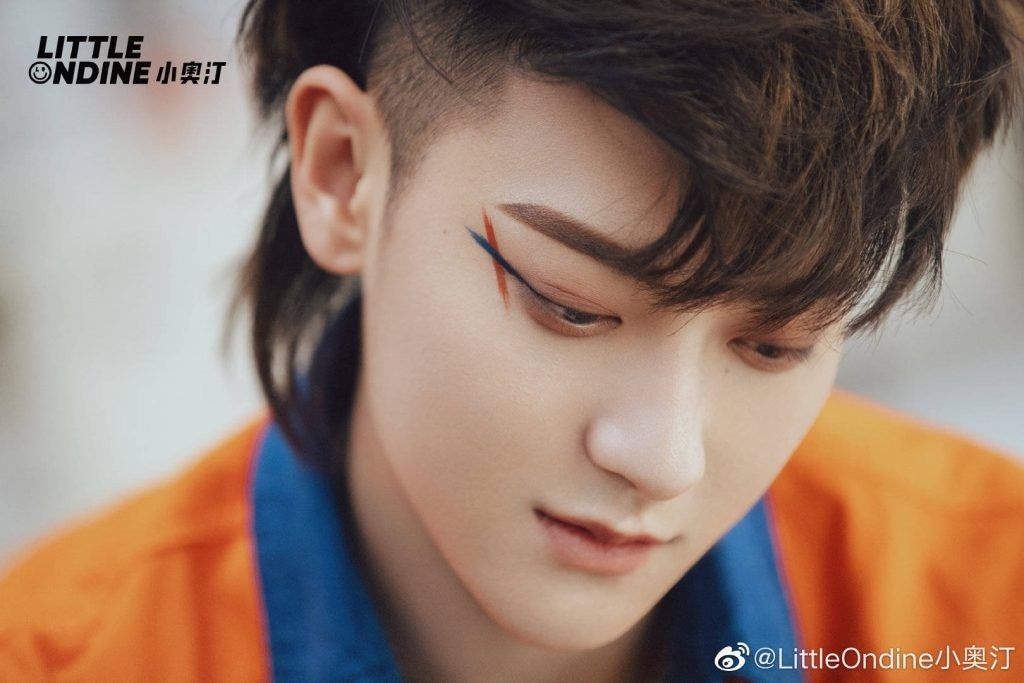
A video released from CCTV a number of years ago featuring this look received much negative feedback, such as, “men should be like men.” These “men” could well include the well-built actor Peng Yuyan, one of them most recognizable actors in China’s film industry and the global ambassador for an LVMH's label, Berluti. This is a sophisticated menswear brand however, indicating that certain consumers will only buy from certain KOLs.
If the overall trend is to move back to a more traditional version of masculinity, there might well be pressure for beauty to move away from these gender neutral or feminine idols; clothing seems to be less conflated. However, the premise of co-opting influencers because of fans is always going to be challenging, especially when particular endorsements say: if you want to be attractive like this idol, then you need to be sporting this look.
“Even though the government might be pushing this, I can’t see it happening soon. The consumer will still want to look how they want to look and in China there’s an awareness that they don't need to look certain ways or stereotypes,” Wang concluded. And consumer power is no more evident than in China.
